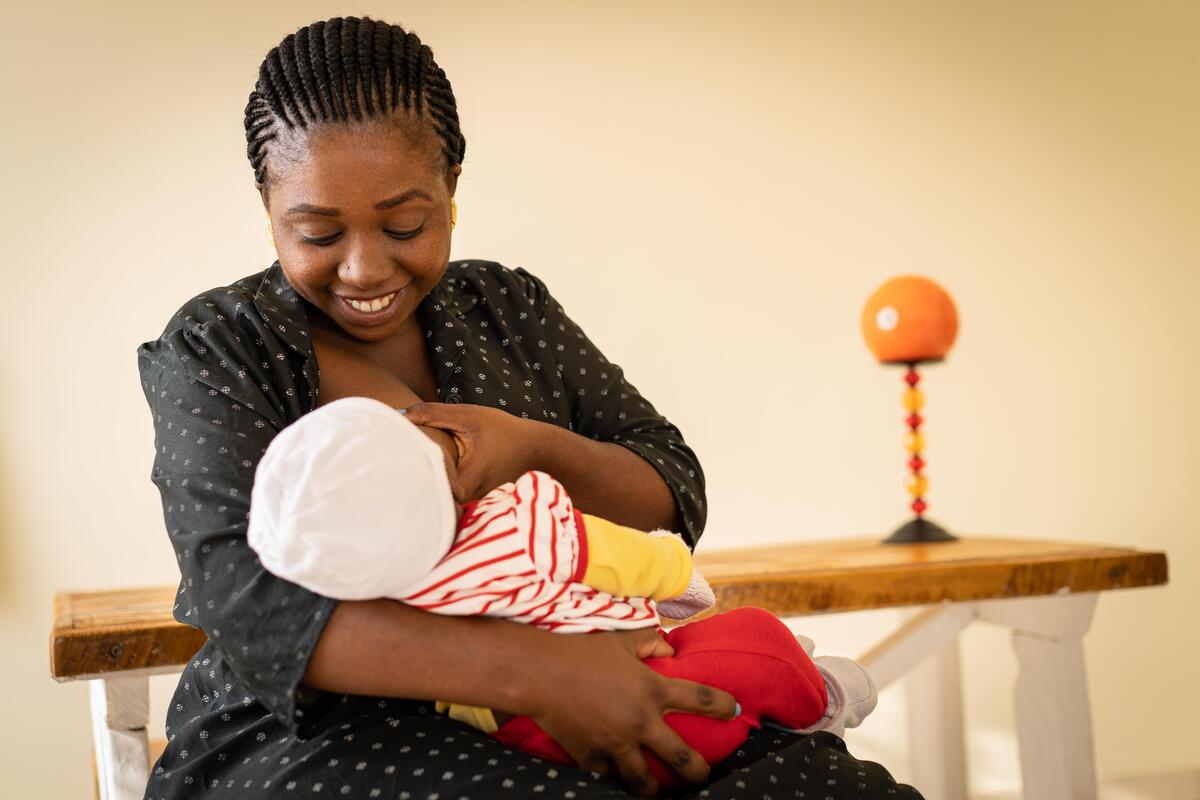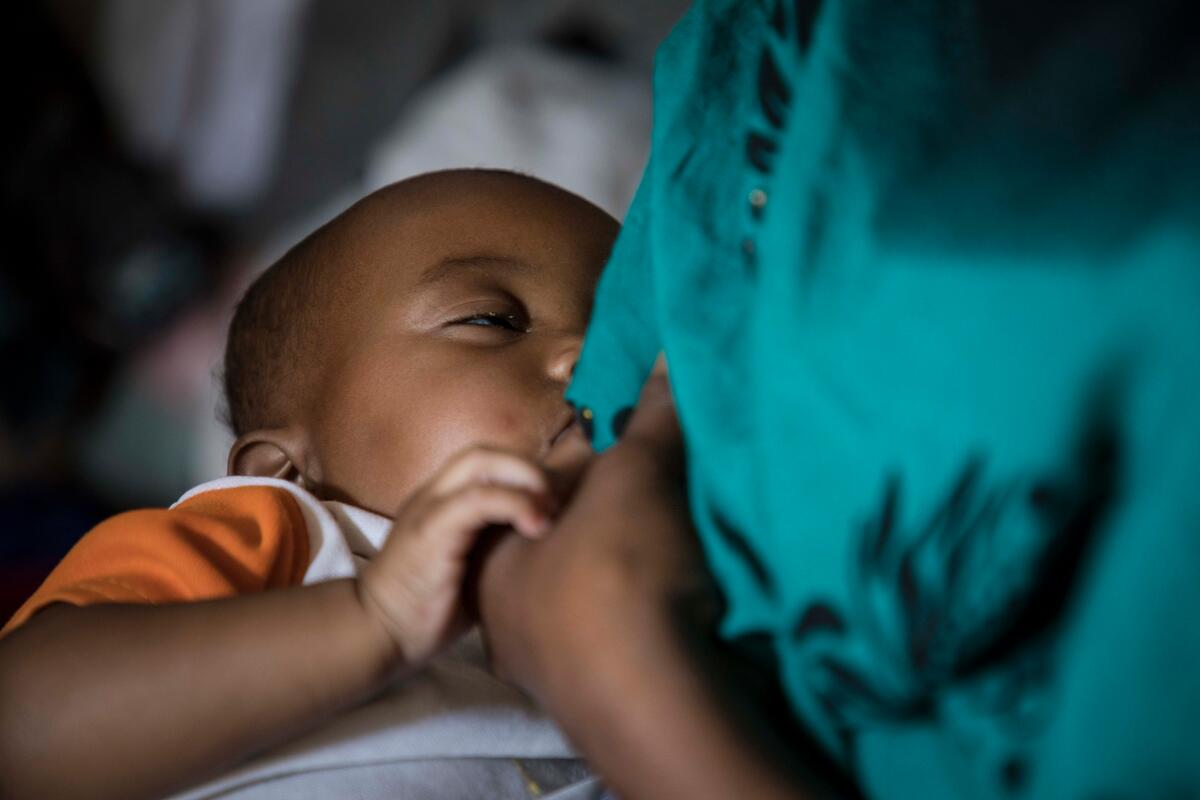
The month of August, known as Golden August, symbolises the fight to encourage breastfeeding, which is a fundamental pillar in policies to combat hunger and promote food and nutrition security. This theme is closely linked to the recognition of the importance of early childhood for lifelong development, and is an agenda incorporated into the Sustainable Development Goals (SDGs) and the government plans of several countries.
Breastfeeding protects the health of children and women, regardless of where they live or their socio-economic conditions. Its benefits are widely recognised: breastfeeding reduces infant mortality rates, provides essential nutrients for babies’ development, strengthens their immune systems and generates no additional costs for families.
Data from 2023 shows that, globally, exclusive breastfeeding rates in the first six months of life have increased by 10 percentage points in the last decade, reaching 48 per cent. This figure is close to the 50 per cent target set by the World Health Assembly for 2025 (Global Breastfeeding Collective, 2023).
These advances are encouraging, but there is still room to expand the practice of breastfeeding. In this context, it is important to recognise that although breastfeeding takes place within the family, the community and its institutions play a fundamental role in supporting and encouraging this practice. In particular, schools and school feeding programmes can be great allies in promoting and strengthening breastfeeding.

Breastfeeding and the school environment
In Brazil, one of the guidelines of the National School Feeding Programme (PNAE) is to provide adequate food for all pupils in the basic education system. For babies up to six months old in early childhood education, this means providing the conditions for continued breastfeeding in schools.
In 2022, the National Education Development Fund (FNDE), which manages the PNAE at the federal level, published a specific technical note for the care of babies and children up to 36 months old. This technical note is based, among other documents, on the ‘Brazilian Food Guide for children under 2 years old’, published by the Ministry of Health in 2019. The Guide offers detailed recommendations on infant feeding in the first two years of life, representing reference material for families and professionals from various fields.
The FNDE’s technical note guides nursery schools to support breastfeeding, providing guidelines on how this can be done safely, considering babies’ vulnerability to contamination. It details the appropriate practices for extracting breast milk from mothers, receiving it in schools, handling it by professionals, storing it and, finally, giving it to babies.
In addition, the regulation suggests the implementation of breastfeeding support rooms in schools, providing mothers with a comfortable and private space to breastfeed, and encourages schools to take part in campaigns to promote breastfeeding, such as National Human Milk Donation Day, World Breastfeeding Week and Golden August itself.
Even in schools that don’t directly cater for babies in this age group, it is possible to support the practice of breastfeeding. These environments can welcome and guide the mothers of students who have other children who are breastfeeding, reinforcing the importance of this practice and serving as a valuable support network.
Sources:
Brazil. Ministry of Education. National Education Development Fund. Technical Note No. 1/2022/DIRAE/CGPAE/COSAN/FNDE: Breastfeeding and the National School Feeding Programme (PNAE). Brasília: FNDE, 2022. Available at: https://www.gov.br/fnde/pt-br/acesso-a-informacao/acoes-e-programas/programas/pnae/media-pnae/nota_tecnica_aleitamento.pdf.
Brazil. Ministry of Health. Primary Health Care Secretariat. Food guide for Brazilian children under 2 years old / Ministry of Health, Primary Health Care Secretariat, Health Promotion Department. – Brasília, 2019. 265 p. Available at: https://www.gov.br/saude/pt-br/assuntos/saude-brasil/eu-quero-me-alimentar-melhor/Documentos/pdf/guia-alimentar-para-criancas-brasileiras-menores-de-2-anos.pdf
Global Breastfeeding Collective. Breastfeeding and work: revisiting infant feeding recommendations for working mothers and mothers working in the informal sector: policy brief. World Health Organisation, United Nations Children’s Fund. 2023. Available at: https://iris.who.int/bitstream/handle/10665/375796/WHO-HEP-NFS-23.17-eng.pdf?sequence=1.
VENANCIO, S.I. et al. Factors associated with early childhood development in municipalities of Ceará, Brazil: a hierarchical model of contexts, environments, and nurturing care domains in a cross-sectional study. The Lancet Regional Health – Americas 2022




